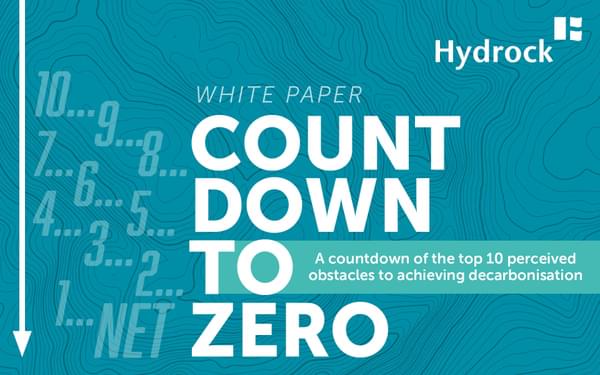Back to Articles
Understanding the TNFD: Your roadmap to sustainable financial reporting
11th Jan 2024
Task Force on Nature-Related Financial Disclosures (TNFD) has published recommendations for nature-related risk disclosure reporting.
Disclosures are currently voluntary, but it is likely that the framework will become mandated in due course, as is the case with TCFD.
TNFD provides a framework for organisations to report and act on their nature-related dependencies, impacts, risks and opportunities.
The aim is to enable organisations and investors to integrate nature into decision-making and shift actions and finance away from nature-negative outcomes, and towards nature-positive outcomes.
Just like TCFD, the transparency of disclosure is a real mark of an organisation's ESG credentials and responsibilities.
Why TNFD matters: The impact on business
It helps all stakeholders, especially investors, to understand the impact that an organisation has on nature, and their exposure to biodiversity risk. It will make it easier for investors to identify companies that align with their values, and reduce the risk of green-washing.
Disclosures will help capture information that informs the assessment of stocks of natural capital, the flow of ecosystem services, and the value of nature to society and business.
Ultimately, it will encourage nature-positive actions and activities.
Unmasking the four pillars of TNFD reporting
TNFD focuses on the same four areas as TCFD:
- Governance
- Strategy
- Risk management
- Metrics and targets
Under this reporting framework, key issues can be understood, for example:
- What are your dependencies on nature?
- What nature-related impacts does your business cause, or contribute to?
- What risks do you face from your dependencies and impacts, both reputational and from depletion of resources?
- How can your business benefit from nature through mitigating negative impacts on nature, and through making a positive impact?
Streamline your TNFD journey: Leveraging existing frameworks for efficient data collection
If you've established a robust process for collecting, assessing and reporting on environmental — and energy — related data for other disclosure requirements, you will already have a lot of the required information and can quickly identify the gaps.
A lot of nature-related data will come from operational data such as water consumption, or the volume of raw materials used in production processes.
TNFD draws from and feeds into existing frameworks such as the International Sustainability Standards Board (ISSB), the Global Reporting Initiative (GRI) and the European Financial Reporting Advisory Group (EFRAG).
Unlock nature-positive success with Hydrock: Your TNFD partner for risk mitigation and sustainable growth
We'll help your organisation understand the value and importance of voluntary reporting under TNFD.
We'll help you understand the nature-based risks to your business, how to mitigate these risks, measure change, and adapt for future sustained success.
The benefits include:
- Responding to nature-based risk.
- Creating a risk management framework for your business.
- Increasing transparency for investors.
- Test your organisation's resilience across a range of hypothetical scenarios, providing the tools you need to make informed decisions in a rapidly changing world.
- Developing an achievable nature-positive strategy.
- Embedding a nature-positive approach in your corporate culture.
- Demonstrating to investors and lenders that your company’s nature-based risks have been appropriately assessed, potentially leading to easier or better access to capital.
We will help you fulfil your disclosure requirements and go beyond in driving sustainable growth.












